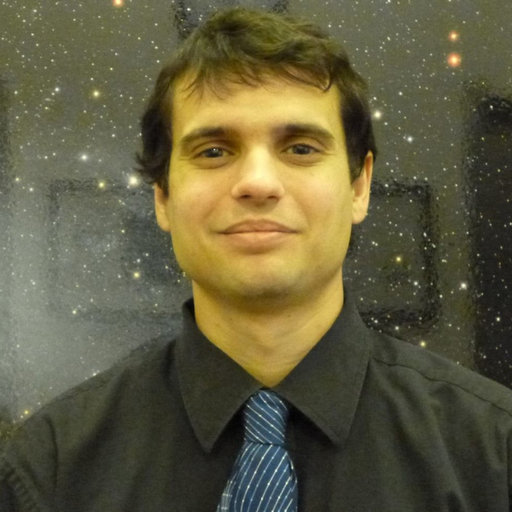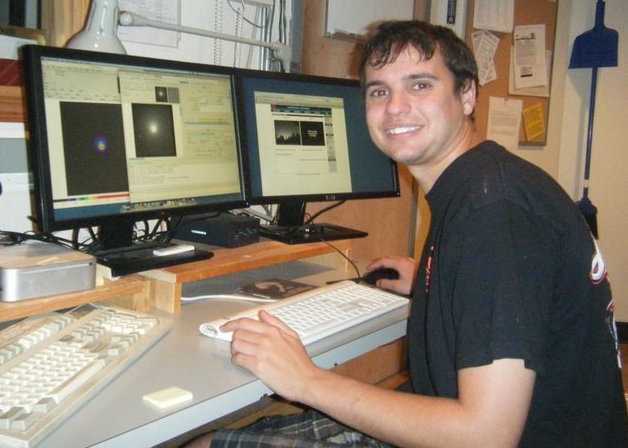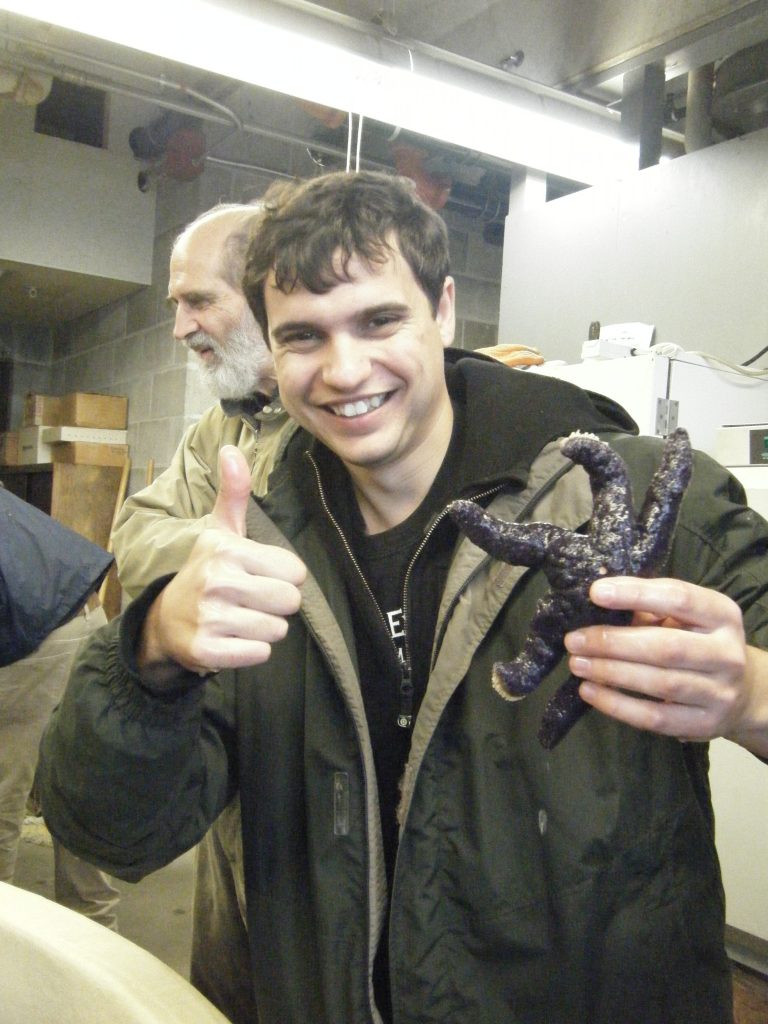This interview was conducted by Samantha Gilbert

Who are you and when did you graduate from UW?
My name is Eddie Schwieterman. I graduated from UW with my dual PhD in astronomy and astrobiology in the summer of 2016.
Where are you now and what are you working on?
I’m currently a NASA Postdoctoral Program (NPP) Fellow at the University of California, Riverside. I work with the NASA Astrobiology Institute’s Alternative Earths Team in applying what we know about the chemical evolution of Earth’s atmosphere and oceans to create templates for understanding the possible diversity of terrestrial exoplanets. In particular, we are interested in the possible remote signatures of habitability and life and how we might inform future NASA missions. We work closely with UW’s VPL towards this goal.
How is your current research related to astrobiology?
The search for life beyond the solar system is one of the principal pillars of astrobiology. While we may find past or extant microbial life within the solar system, our only chance of discovering a robust planetary biosphere like we have on Earth is to look to exoplanets.

What does your typical work-day look like?
My workday is not exceptional – it’s a mix of coding, writing, reading, and responding to emails. I try to schedule my meetings and telecons all on one or two days. The most productive times are spent writing material for a paper or grant proposal with minimal other distractions.
What did you research in grad school as a UWAB student?
I was fortunate enough to work on several projects as a UWAB student. I worked on modeling “Earth as an exoplanet” using the VPL’s 3D spectral Earth model. I researched the detectability of N2 in planetary atmospheres. I worked extensively on predicting indicators for potential abiotic oxygen “false positive” biosignatures, using photochemical, climate, and spectral models. Finally, I researched alternative surface biosignatures (analogs to the vegetation red-edge) and how detectable they may be.
How has your experience at UWAB prepared you for what you are doing today?
UWAB provided so many helpful experiences and opportunities. The astrobiology disciplines course was a very useful survey of the open questions in the constituent fields of astrobiology. The professional development course was invaluable for preparing some of my grant proposals, including my winning fellowship proposal. The simple opportunity to be surrounded by instructors, researchers, and other graduate students from a variety of disciplines and departments (Earth Sciences, Oceanography, Astronomy, etc.) was excellent from the standpoint of advancing my understanding of the interdisciplinary science in astrobiology. Many of my closest professional and personal colleagues and friends I met specifically because of UWAB either at UW or through conferences and summer workshop opportunities.
Which UWAB experience has stuck with you the most?

For my research rotation, I spent a quarter in Edinburgh, Scotland culturing pigmented microorganisms including anoxygenic phototrophs in airtight bottles evacuated of oxygen. That was pretty far removed from my previous research experience in computational and observational astronomy, but that’s part of why I love UWAB.
Describe your overall career path. How did you decide to become an astrobiologist?
As a kid, I had a dual interest in digging up fossils and using my backyard telescope, so I think the interest was always there. I did my undergraduate studies in physics and astronomy but took a broader set of courses than I needed including one on astrobiology. When I was looking for graduate opportunities in astronomy, I found UWAB and realized I could have the best of all worlds. I’m incredibly grateful for that opportunity.
In your opinion, what makes an astrobiologist unique among other scientists?
As astrobiologists, we have this amazing opportunity to address broad and compelling questions like ‘Are we alone?’ I think we also tend to realize that interdisciplinary science needs to be done by a community of scientists, each bringing something unique and essential to the table. We’re therefore a bit more engaged with each other and community driven than other fields.
How does your conception of your science influence the methods you develop in order to investigate astrobiology research questions?
Science is a process and a way of knowing, but it is also a community of people. To address research questions in astrobiology it is essential to leverage the power of that community in productive ways. For example, an astrobiology-centered proposal is more likely to be successful if you involve multiple people with deep wells of disciplinary knowledge who can each contribute to a part of your research plan. Developing a network for these purposes is critical.Edit
